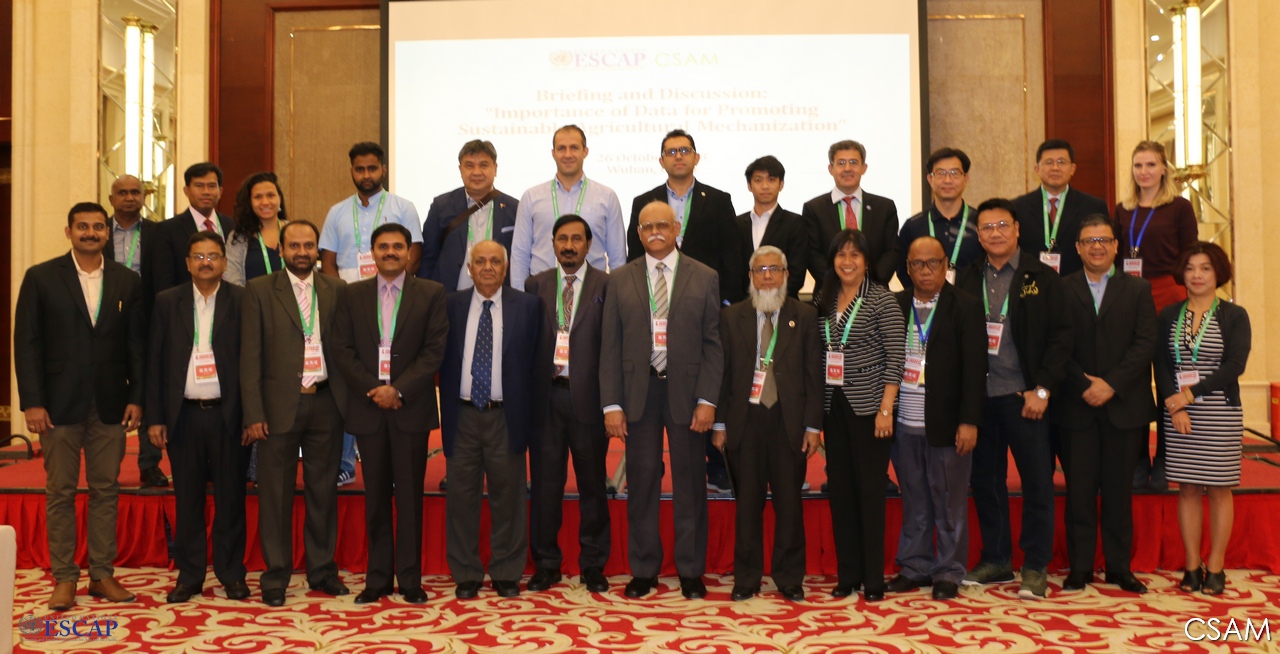Briefing and Discussion:Importance of Data for Promoting Sustainable Agricultural Mechanization, 26 October 2018, Wuhan, China

Sustainable agricultural mechanization can be an important enabler towards a number of Sustainable Development Goals (SDGs), particularly SDG 2 (Zero Hunger) and SDG 1 (No Poverty) as it promotes improved productivity and product quality, reduced farm operational cost, and enhanced utilization of farm inputs. In addition, sustainable agricultural mechanization can also catalyze progress towards the attainment of some other SDGs such as SDG 8 (Economic Growth) through the development of an agricultural mechanization industry together with healthy trade and investment in this sector, SDG 12 (Responsible Consumption and Production) through improved value chain efficiency, SDG 5 (Gender Equality) through support to women farmers and SDG 13 (Climate Action) through the conservation of natural resources such as soil and water.
In this context, agricultural mechanization data can serve as a powerful tool to facilitate setting of policy priorities as well as promote effective programme development and implementation. Policy-makers need good quality data for analysis of the scientific evidence and to assess the impact and efficiency of agricultural mechanization strategies to generate cross-cutting transformation. Agricultural mechanization data also supports investment decisions by the private sector and promotes opportunities for fruitful partnerships at the country level between policy-makers, researchers, the private sector and civil society.
CSAM has an ongoing initiative titled ‘Regional Database for Sustainable Agricultural Mechanization in Asia and the Pacific’ to strengthen availability of data for more effective regional as well as national strategies for sustainable agricultural mechanization. By complementing and strengthening existing national databases, and improving the quality and quantity of comparable, timely and reliable data, this initiative seeks to assist member States in identifying the level of agricultural mechanization and facilitate technology innovation and trade of agricultural machinery. Technical guidelines in context of a regional database on sustainable agricultural mechanization were developed by CSAM and endorsed by participating countries at a regional workshop held in Malaysia in June 2018.
On 26 October 2018, CSAM organized a “Briefing and Discussion on Importance of Data for Promoting Sustainable Agricultural Mechanization” in Wuhan, China. Twenty-three participants representing 12 countries and the Food and Agriculture Organization of the United Nations (FAO), including government officials and researchers, private sector representatives and experts, took part. The event highlighted the role of data for effective decision-making and accelerating the development of sustainable agricultural mechanization in the Asia-Pacific region, provided a briefing on CSAM’s technical Guidelines for the Regional Database, and obtained feedback on relevance and application/use of indicators. Practical constraints in data collection at the national level were also discussed.
